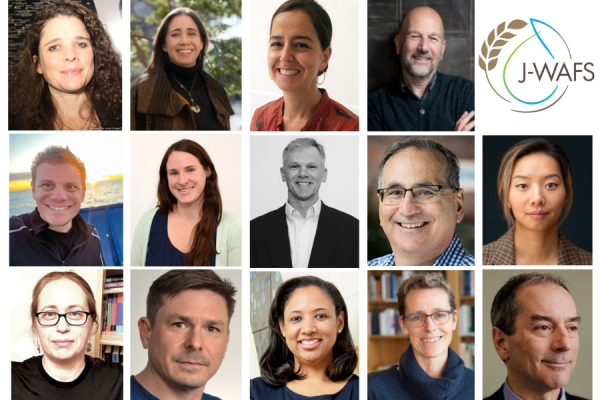Our Research National crop type maps of India using deep learning and street view imagery

Farmers harvest rice in India. Mapping crops can improve agricultural management and farmer outcomes. Photo credit: World Bank.

Crop type map for Thailand, created as part of a research pilot by the Earth Intelligence Lab. Photo credit: Sherrie Wang, Jordi Laguarta, Jonathan Giezendanner.

The small size of fields in India and heterogeneous rural landscape make crop type maps challenging to create. Photo credit: Airbus.
Principal Investigator
Sherrie Wang
- d'Arbeloff Career Development Assistant Professor
- Department of Mechanical Engineering
- Institute of Data, Systems, and Society
Sherrie Wang is the d'Arbeloff Career Development Assistant Professor of Mechanical Engineering and at the Institute of Data, Systems, and Society. She is a principal investigator of the Earth Intelligence Lab at MIT, which works on monitoring human activity on our planet through satellite imagery and other spatial data, with the goal of enabling sustainable development. Prior to MIT, Sherrie received a BA from Harvard University, a PhD from Stanford University, and completed her postdoc at UC Berkeley.
Challenge:
How can we map which crops smallholder farmers are growing at the field scale for all of India?
Research Strategy
- Generate a large dataset of geolocated crop type ground references across India using roadside imagery and deep learning, with accuracy verified by human agronomists
- Use satellite imagery, machine learning, and ground labels to create India-wide crop type maps, covering major staple crops and cash crops and spanning the 2022-2023 monsoon and winter seasons
- Analyze crop type maps for crop rotation patterns and changes in farmer crop choice from year to year
Project description
Ensuring global food security is a major challenge we face this century. Accurate crop type maps are an essential source of information for monitoring yield progress, projecting global crop production, and planning effective policies. However, only a handful of countries—mostly high-income—have the large-scale ground data necessary to harness satellite images and machine learning for crop type mapping. India, which is home to 125M smallholder farmers, currently has no crop type map for public use, with a lack of ground truth labels being the main bottleneck.
In this project, Wang and her team will address the high cost of acquiring ground references by using computer vision on roadside imagery taken from cars and motorcycles to extract crop type information. The researchers will then train a model to map crops across India using satellite imagery, deep learning, and the generated crop ground references. The main outcome for the project will be 10m-resolution crop type maps for India in 2022-23. The team will also explore long-term crop type mapping to track changes in cropping patterns over time.
News
Additional Details
Impact Areas
- Water
- Food
- Climate & Sustainability
Research Themes
- Water Purification & Desalination
- Sensors & Monitoring
- Water Resources & Infrastructure
- Technology & Commercialization
- Sustainability & Adaptation
- Soil Fertility & Crop Productivity
- Economics, Policy, & Practices
- Transforming Food Systems
- Modeling & Data Analytics
Year Funded
- 2024
Grant Type
- Seed Grant
Status
- Ongoing

